Main page chevron_right About IRLC
History of the Institute
In spring of 1954 a large group of students from Democratic Republic of Vietnam came to the Lomonosov Moscow State University. Before entering any MSU department or any other soviet university they had to learn Russian language and to adjust their knowledge of specific subjects to the requirements of the corresponding universities. To deal with this problem Head of MSU I.Petrovsky created special courses for young people from other countries. The courses started on 14 October 1954. A number of Russian language professors started teaching at these courses. That’s how the development of a new branch of applied linguistics named “Russian as a foreign language” started. Within a very short period of time there were created first programs, textbooks and manuals for foreign students.
To prepare the students for the entry exams, the course also had to include such subjects as mathematics, physics, chemistry, biology, geography, literature and history. Thus special methods of teaching these subjects in Russian to foreigners were elaborated.
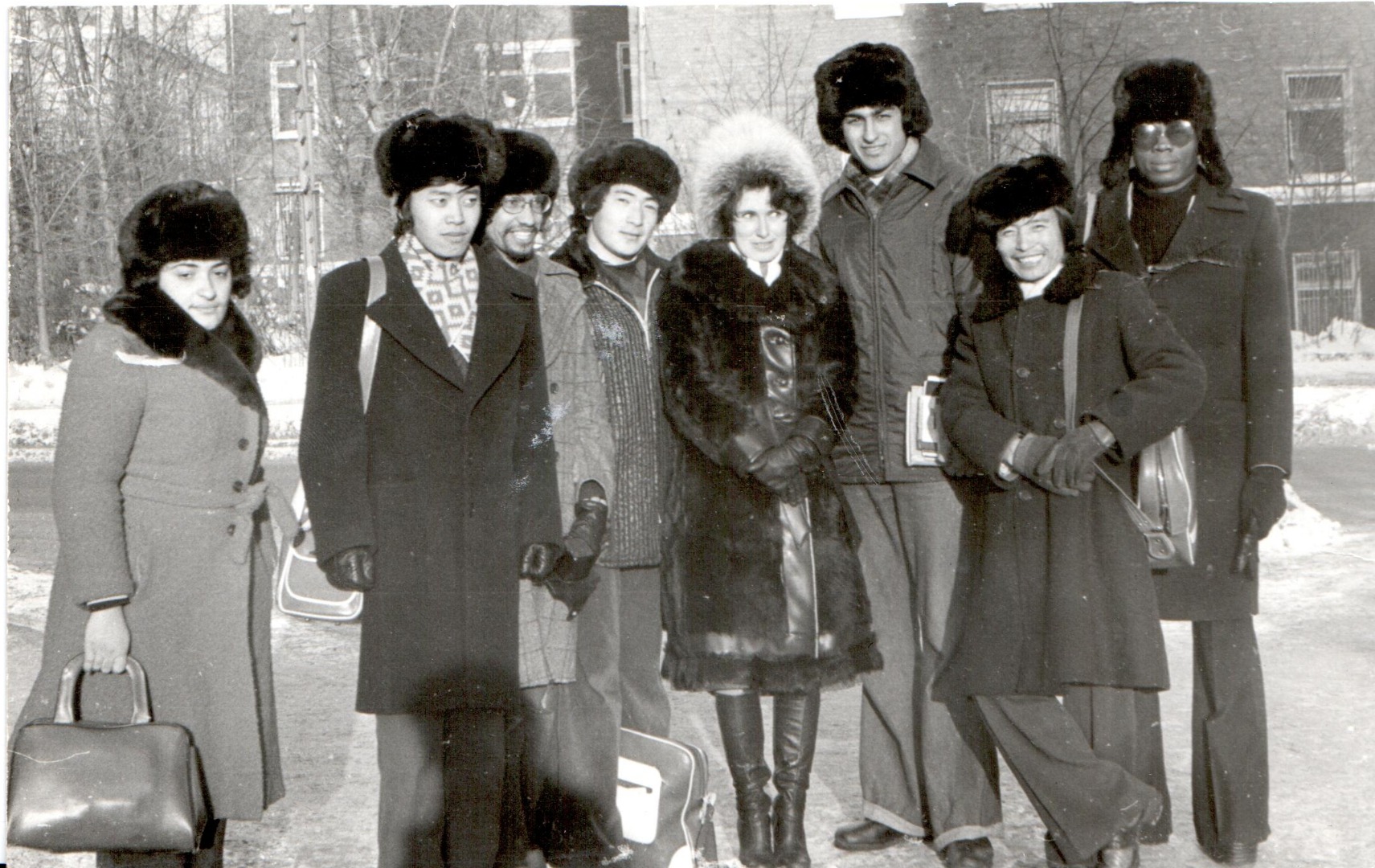
As the time passed by, the flow of foreign students from other countries was gradually increasing and as of 1955 there were students from all parts of the world studying at the MSU: from Asia and Africa, from Latin America and Europe.
Soon enough the courses became so big and the scientific work done by the professors teaching on these courses was so profound that the courses were transformed into the first of a kind Pre-University Department for foreign students by the order of Head of MSU, I.Petrovsky.
At the beginning of 60s there were not only undergraduate and graduate students, but also future interpreters, interns, teachers of Russian language, coming to Russia to improve their skills. The special training course for Russian language teachers was created. This course was designed for the interns from Europe, Asia and Latin America coming to the USSR within the program of the Union of Soviet Friendship Societies. Interns from over 40 countries of the world completed this course during 18 years of its existence.
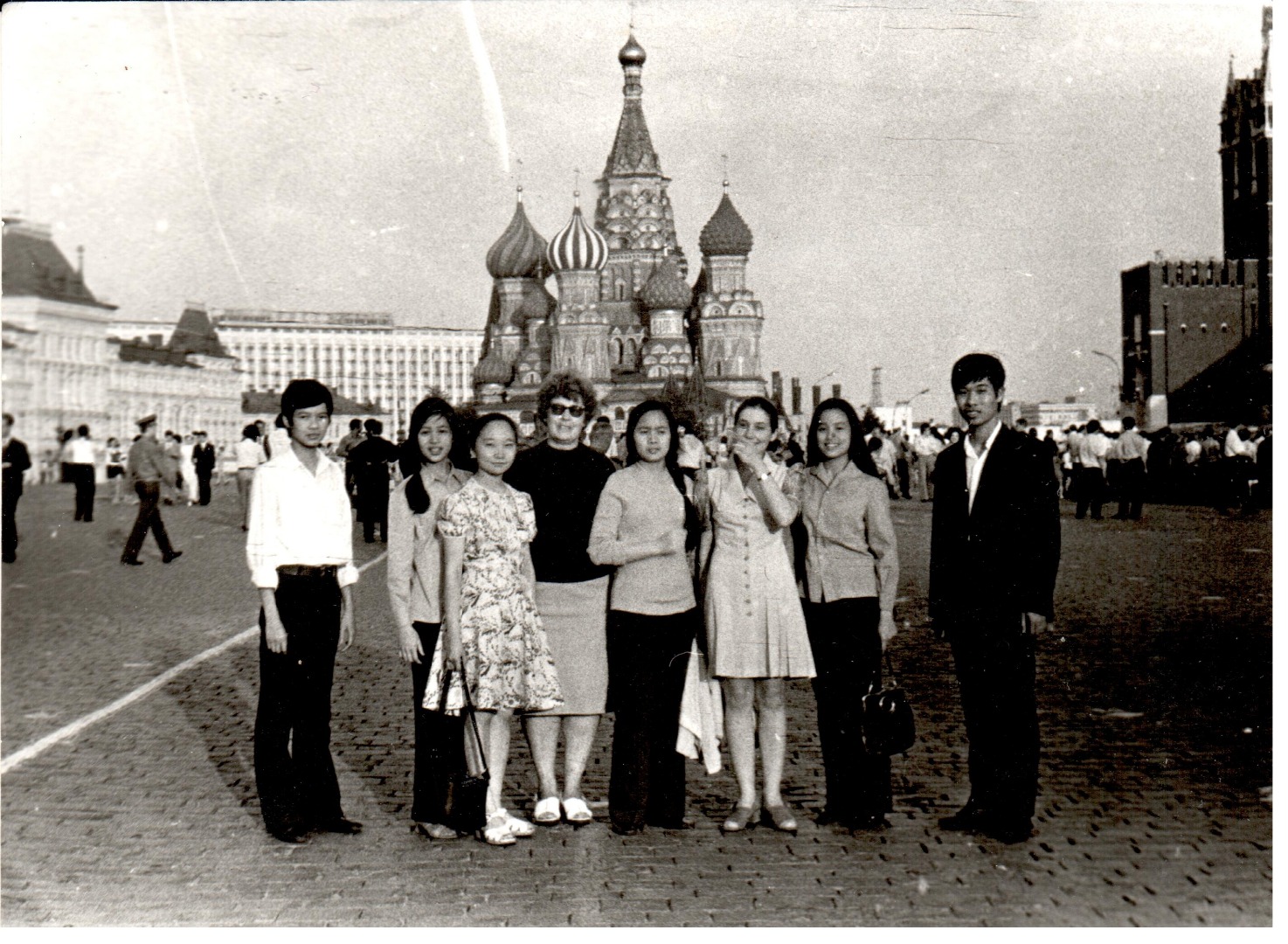
Later there were created training courses for the teachers of Russian language from socialistic countries such as Bulgaria, Hungary, German Democratic Republic, Mongolia, Poland, Romania and Czechoslovakia. Specialist created manuals for these students oriented at the different nationalities. Separate program and plan was designed taking into consideration the level of the students and shorts terms of the course.
The structure of the department changed. There were two divisions, one of which dealt with future students, another one provided training course for foreign teachers of Russian language.
Since MSU Pre-University Department was first of a kind in the USSR all problems related to the teaching of Russian language had to be solved here. It became a role model for all similar departments created in other universities. Such departments were created based on the expertise provided by the MSU not only in the USSR but also in other countries. Pre-University Department of MSU eagerly shared its expertise and provided specialist to help to create such departments.
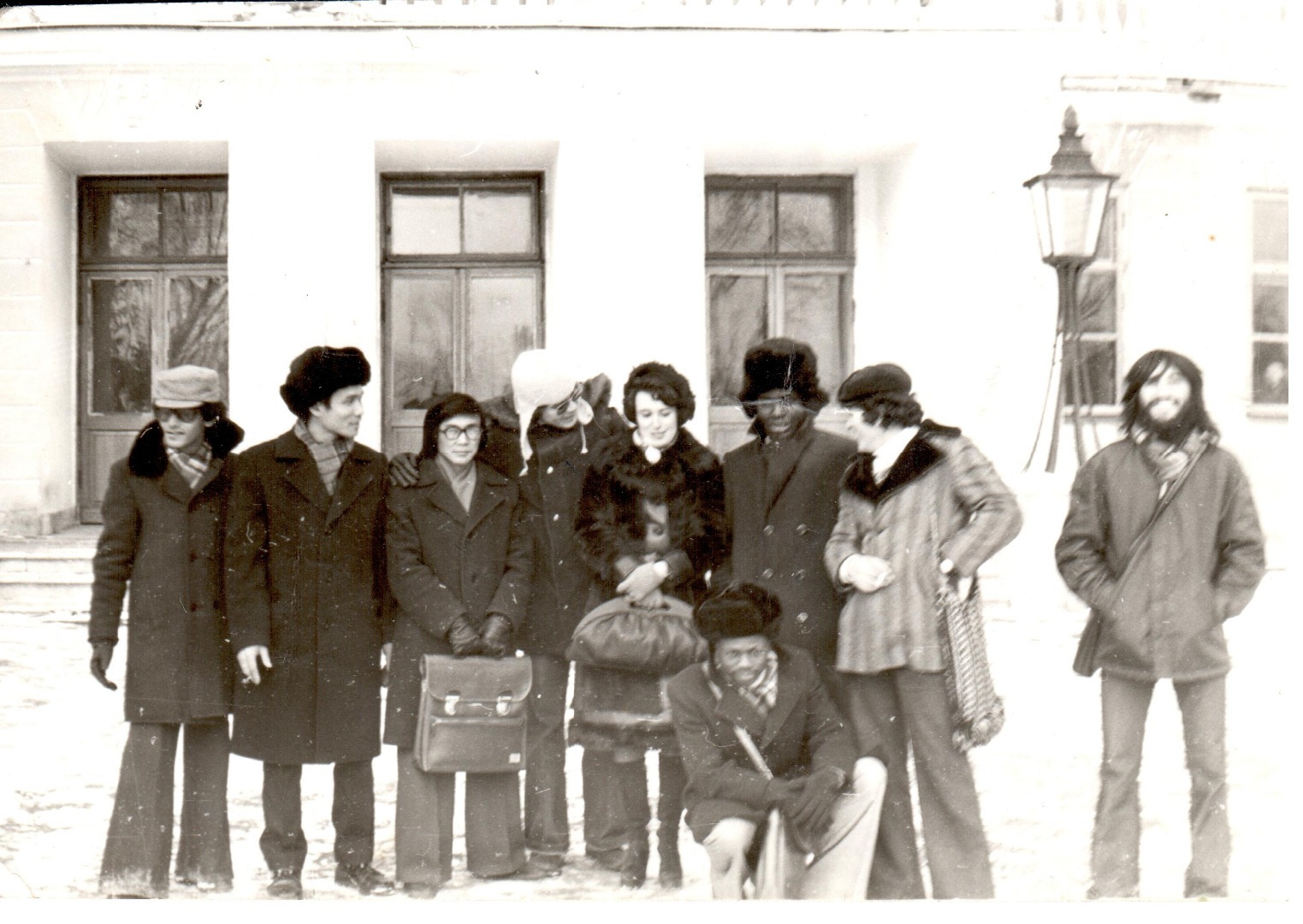
In 1960 a large group of professors with E.Motina as their team leader helped to establish the People’s Friendship University (PFU) in Moscow. The Pre-University Department at MSU was tasked to help to create a Russian language department specialising in teaching foreigners at PFU. In 1966, it was decided to separate the Research and Instructional Methodology department from the Pre-University Department at MSU. Thus the Centre for Research and Instructional Methodology was born, staffed primarily with teachers from the Pre-University Department. The Centre later became Pushkin State Russian Language Institute.
The number of students studying at the Department and their nationalities largely depended on the political situation in the world. The disappearance of the USSR made the restructuring of the Department inevitable. On 1 November 1991 Head of the University ordered to create the Centre of International Education (CIE) MSU on the base of the Pre-University Department. The main aim of this Centre was to bring the education at the MSU to meet the international standards. Thus the responsibilities of this Centre included:
- forming the group of foreign students;
- doing the research on the international education market and the respectful database;
- organizing the advertising campaign to promote the services of the CIE;
- organizing and fulfilling the preparation of the foreign students for further studying at the main departments of the MSU and other universities;
- doing the research and preparing manuals to be used while teaching Russian as a foreign language and other related subjects.
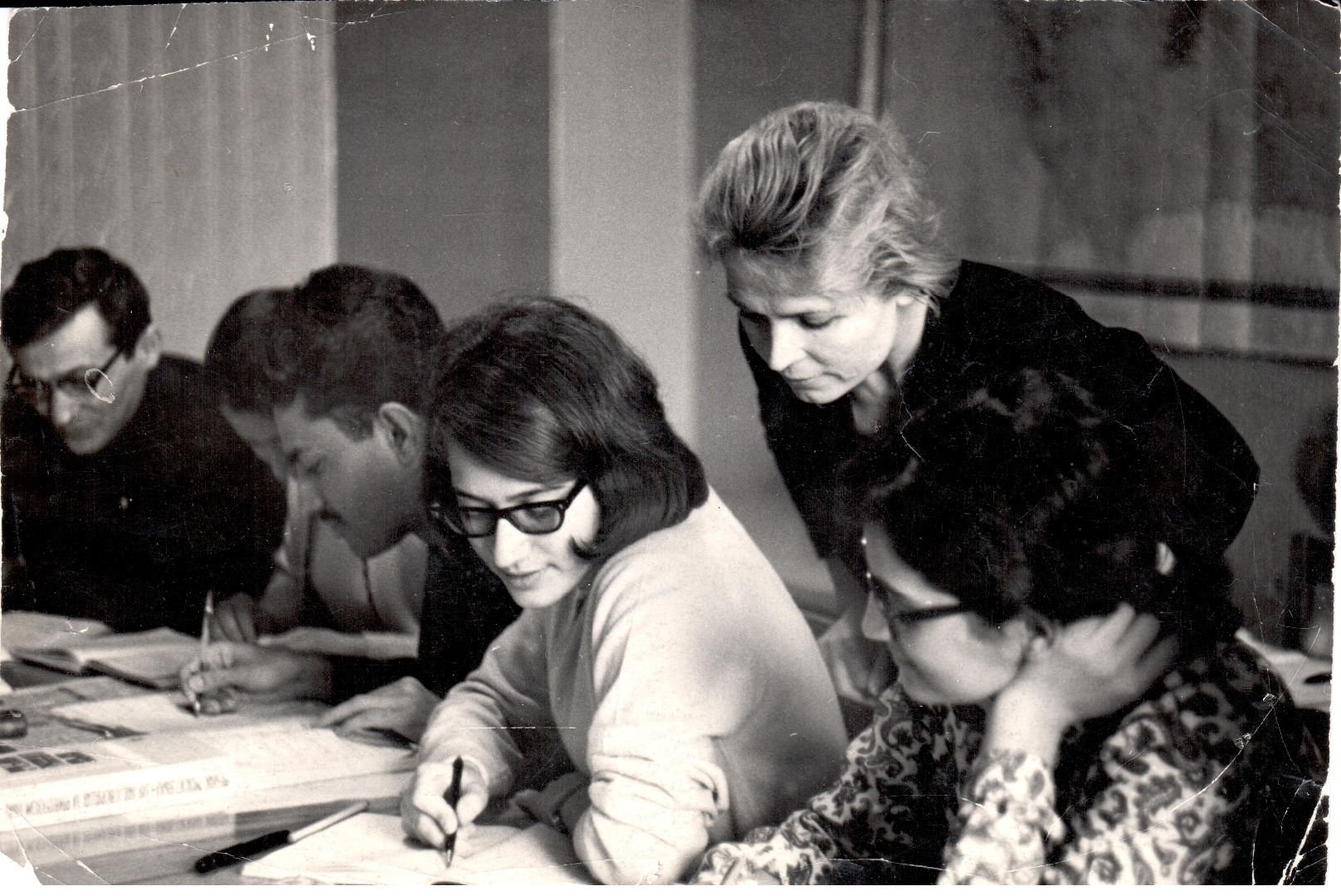
The basic methods and principles of teaching Russian as a foreign language were created in the CIE. Specialist of the Centre developed manuals for the students of particular nationalities and universal manuals that can be used with all audiences. The pioneer work was done in developing textbooks for teaching special language used in different subjects, such as language of mathematics, language of the social studies etc. The gradual level-by-level development of skills in all types of language behavior became the base for further creation of the testing system.
Center of International Education became a member of such organizations as MAPRYAL (International Association of Teachers of Russian Language and Literature), ACTR (American Council for Teachers of Russian Language and Literature), ALTE (Association of Language Testers in Europe) and German Association of Teachers of Russian Language and Literature. This helped to share experience and expertise across the borders. The Centre participated in multi-cultural and multi-lingual processes that influenced the teaching of foreign languages.
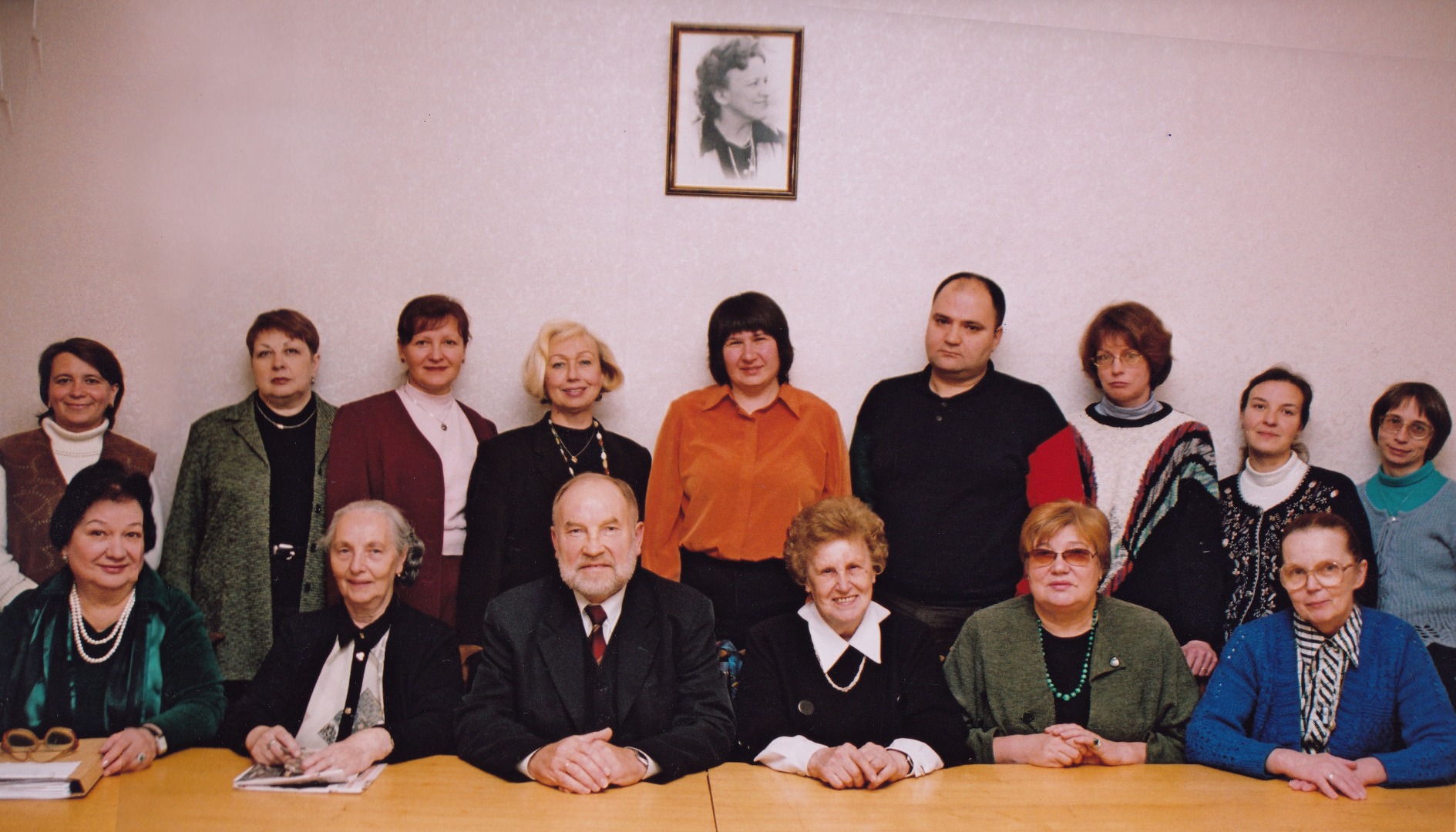
The information about the CIE was published in many guides on international education and appeared in mass media all over the world. The CIE was well acknowledged in the international market of education.
Many things changed in 60 years of the existence of the Institute: the name changed several times, new divisions appeared, new courses were developed, new methods were discovered, but the main aims and principles remained the same.
In 2013 by order of the Head of MSU V. Sadovnichiy the Centre of International Education was reformed into the Institute of Russian Language and Culture. This brought in new challenging tasks and responsibilities.
The Institute of Russian Language and Culture suggests three different types of educational programmes of supplementary education and supplementary professional education all year round. These are pre-university programmes, short-term intensive courses of Russian language and culture and professional retraining and advanced training courses for teachers of Russian as a foreign language. Since 2017 Korean and Chinese programmes for Russians have been implemented at IRLC.
Although scientific and methodological activity at IRLC is based on long-term traditions, it includes modern educational models. The International Research to Practice Conference «The Russian Cultural Space», which is the main scientific event, is traditionally held every year. The other International Scientific and Practical Conference is the biennial conference “The methods of teaching different subjects for foreign students”. The Open Lecture “RFL: Yesterday, Today, Tomorrow” has become a new direction of scientific and methodological work of the Institute. The speakers include some of the leading specialists in the field of Russian as a foreign language, the creators of a branch of applied linguistics named «Russian as a foreign language», the authors of the popular textbooks and methods, professors from the main Russian universities who specialize in pre-university courses for international students.
The Institute takes an active part in scientific and educational projects held in MSU. Among them, there is the Annual Scientific Conference “Lomonosov Readings”, the International Congresses of Teachers of the Russian Language and Literature and The Russian Literature Society, online Friendship Festival and many more. The new cultural-educational online project “Russian Saturdays” was started on the IRLC platform in January 2021. It was made by the International Association of Teachers of Russian Language and Literature (MAPRYAL), Association of Russianists of Slovakia (ARS) and Lomonosov Moscow State University. The other online project “Diverse Russia” was established on May 29, 2021, to show the identity and ethnocultural diversity of peoples living in the Russian Federation.
The staff of IRLC is planning to further extend programmes of supplementary professional training, to improve educational technologies (including distance learning for foreign students), to create new textbooks and training manuals and to participate in large-scale scientific and educational projects of MSU.









